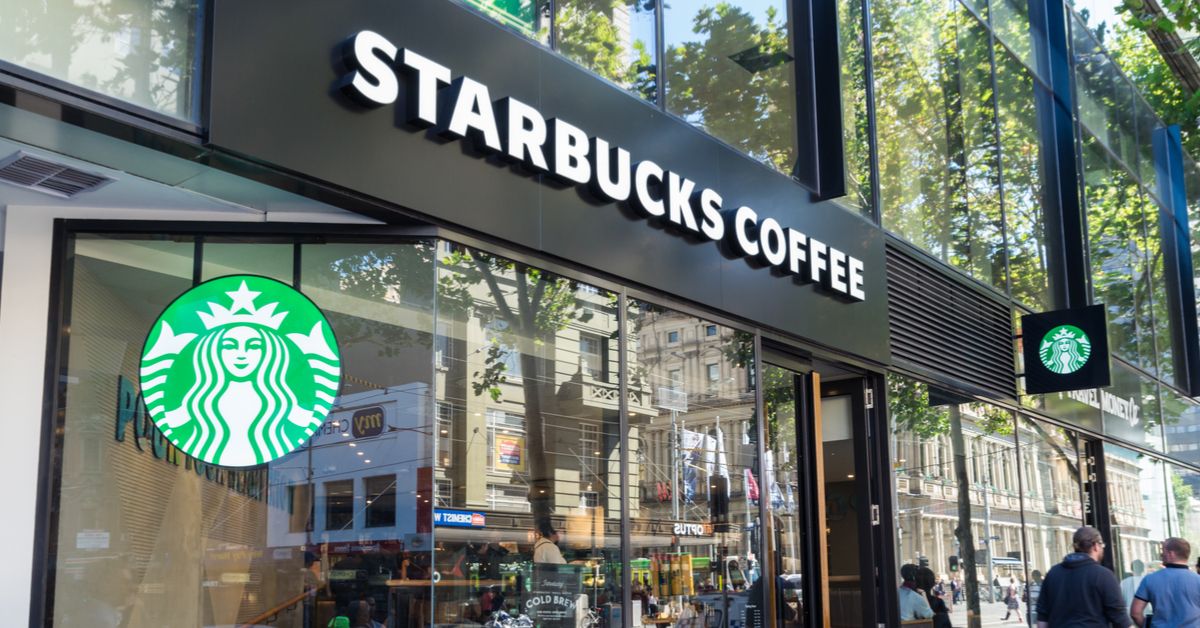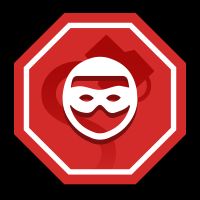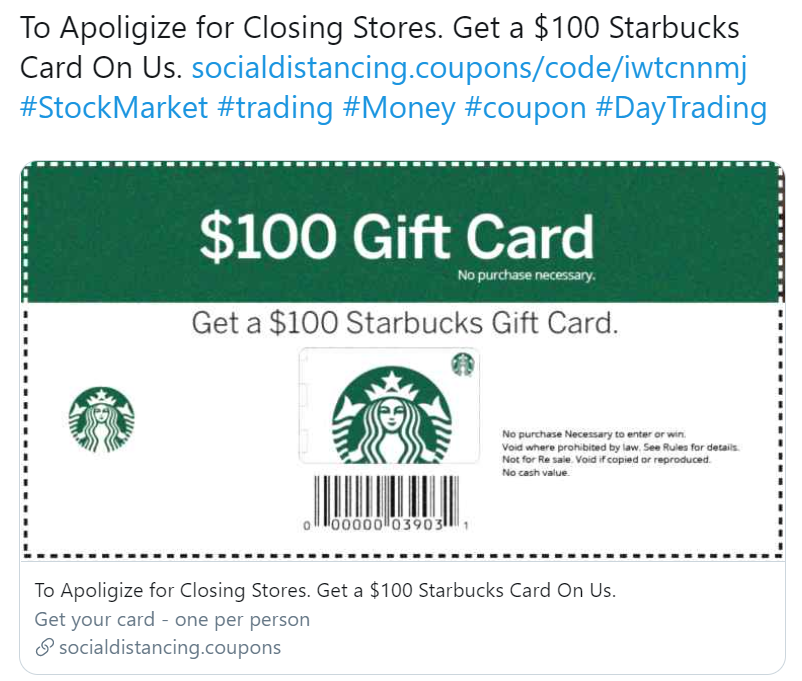In late March 2020, amid the COVID-19 coronavirus disease pandemic, scams abounded on the internet. One such scam reported that consumers could get a $100 coupon during the pandemic for use at Starbucks cafes by simply clicking on a link. Here is a screenshot of a Twitter post promoting the bogus offer:
Although the links shared with the posts no longer appear to work, we are rating this offer a "Scam" because no evidence exists that the coupon was real. The web address for the "coupon," for example, was not from an official Starbucks website.
We asked Starbucks to confirm the offer was a scam but didn't receive a response in time for publication. However, the "offer" being made echoes similar coupon scams that promise "free" or discounted goods from well-known brands if users click on a site — collecting people's private information in the process — but then don't deliver on the promise.
As we have reported in the past on such scams:
These types of viral “coupon” scams often involve websites and social media pages set up to mimic those of legitimate companies. Users who respond to those fake offers are required to share a website link or social media post in order to spread the scam more widely and lure in additional victims. Then those users are presented with a “survey” that extracts personal information such as email addresses, telephone numbers, dates of birth, and even sometimes credit card numbers. Finally, those who want to claim their “free” gift cards or coupons eventually learn they must first sign up to purchase a number of costly goods, services, or subscriptions.
The Better Business Bureau offers consumers several general tips to avoid getting scammed:
- Don’t believe what you see. It’s easy to steal the colors, logos, and header of any other established organization. Scammers can also make links look like they lead to legitimate websites and emails appear to come from a different sender.
- Legitimate businesses do not ask for credit card numbers or banking information for coupons or giveaways. If they do ask for personal information, like an address or email, be sure there’s a link to their privacy policy.
- When in doubt, do a quick web search. If the giveaway is a scam, this is likely to reveal an alert or bring you to the organization’s real website, where they may have posted further information.
- Watch out for a reward that’s too good to be true. Businesses typically give out small discounts to entice customers. If the offer seems too good to be true (a $100 voucher or 50% discount) it may be a scam.
- Look for a mismatched subject line and email body. Many of these scams have an email subject line promising one thing, but the content of the email is something completely different.


